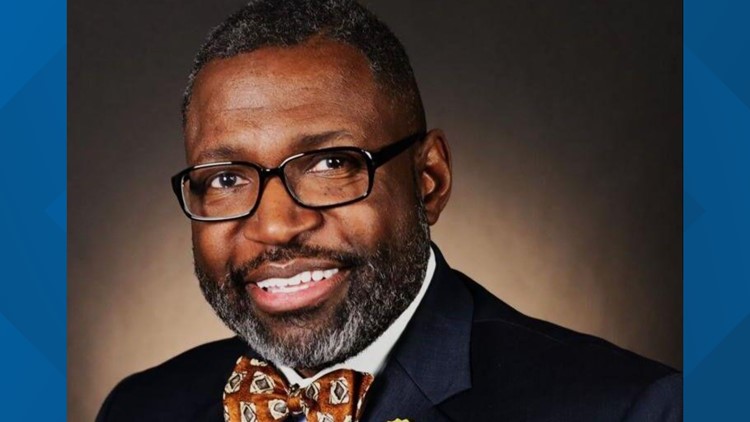The future of the school’s historic Department of Education, one that has helped create thousands of Black educators for more than 100 years, is clouded because it failed to meet Missouri Department of Elementary and Secondary Education (DESE) standards for training new teachers.
In addition, Harris-Stowe was placed “on notice” by the state’s Higher Learning Commission last year for being at risk of falling out of compliance with accreditation requirements.
Its current issue is the failure to submit the number of education majors who enrolled and completed the program in 2023. The university is the only educator preparation program out of 43 statewide - and one of only three in the country - to receive letters of noncompliance.
Harris-Stowe State University’s accreditation status will be reviewed during the Missouri State Board of Education’s February meeting. If shown to still be in noncompliance, it risks losing its accreditation with the state.
Dr. Latonia Collins, HSSU president, released a statement in response to DESE’s notice of noncompliance. The “deviation” was traced back “to an oversight by the College of Education administration, who failed to submit a requisite report by the October 20, 2023 deadline.”
Collins Smith’s response seems to reveal a curious absence of responsibility.
The state requires the appointment of an“Appropriate Official”- not a college board or an administration person - to be responsible for the educator preparation program.
This “official,” according to state standards, could be anyone at the level of “vice president, dean, or director” designated by the college or university president.
So, who is the designated person at Harris Stowe State University?
It could have been Dr. Marrix Seymore, who was appointed dean of the University’s College of Education at the beginning of this year. His duties included managing administrative functions of colleges of education, long-term planning and policy setting and, according to Harris Stowe’s press release, leading “all functions of planning, directing, and executing programs provided by the College.”
When the St. Louis American requested an interview with Seymore regarding the missed deadline, a university spokesperson said in an email “Dr. Marrix Seymore is no longer with Harris-Stowe.”
A “national search has been launched for a new Dean of the College of Education,” according to Harris-Stowe.
Seymore was not specifically mentioned in Collins Smith’s statement. The university also did not explain when he left the university or why he is no longer employed there.
Collins-Smith said in the release the university has begun a “proactive plan” to address the situation.
“The university swiftly devised a proactive plan, underscoring its unwavering commitment to promptly identify, address, and prevent future instances of non-compliance,” Collins Smith said.
“This strategic initiative reflects the institution's dedication to upholding the highest standards in educator preparation.”
Collins-Smith insists Harris-Stowe State University will not lose its accreditation. Even without Seymore, she said the university is ready for DESE’s review next year.
“A series of strategic measures have been implemented since the last evaluation,” Collins Smith said.
“These encompass the establishment of robust policies and procedures, timely audit submissions, mandatory training and professional development, key administrative appointments, infrastructure enhancements, comprehensive program reviews, and dedicated resource allocation in alignment with the overarching strategic plan.”
Harris-Stowe, a 166-year-old institution, has faced challenges in its recent past.
Collins-Smith, who served as interim president before being officially named to the position, is HSSU’s third leader in just over three years.
Harris Stowe has yet to fully recover from setbacks incurred during the COVID-19 epidemic. Reportedly, enrollment has fallen by one-third; down from 1,630 students in 2019 to 1,084 in 2023.
The University has a graduation rate of 20% in six years, which is among the lowest in the country. Additionally, Harris Stowe grapples with a decline in education majors, dropping from 303 in 2015 to 126 in 2022.
Still, according to Collins Smith’s statement, the educational institution has made “notable achievements,” including “significant faculty appointments and recent triumphs in biological and geospatial sciences, as well as business and entrepreneurship.” Harris Stowe, the president added, “remains steadfast in its foundational role as a college dedicated to the training of educators.
Sylvester Brown Jr. is the Deaconess Foundation Community Advocacy Fellow.


